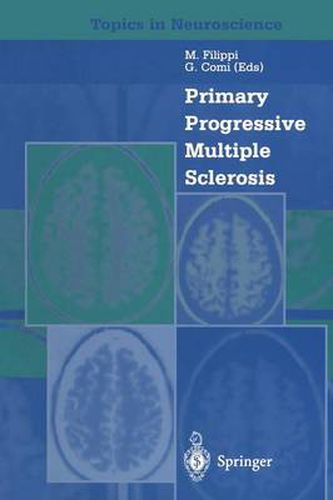Readings Newsletter
Become a Readings Member to make your shopping experience even easier.
Sign in or sign up for free!
You’re not far away from qualifying for FREE standard shipping within Australia
You’ve qualified for FREE standard shipping within Australia
The cart is loading…






This title is printed to order. This book may have been self-published. If so, we cannot guarantee the quality of the content. In the main most books will have gone through the editing process however some may not. We therefore suggest that you be aware of this before ordering this book. If in doubt check either the author or publisher’s details as we are unable to accept any returns unless they are faulty. Please contact us if you have any questions.
Why are there no effective treatments for my condition? Why do researchers exclude patients with primary progressive multiple sclerosis from enrolling in clinical trials? Please let me know if you hear of studies that I might be allowed to enter or treatments that I could try for my condition.
Thus, in recent years, the sad lament of the patient with primary progressive MS (PPMS). This variant, often in the guise of a chronic progressive myelopathy or, less commonly, progressive cerebellar or bulbar dysfunction, usually responds poorly to corticosteroids and rarely seems to benefit to a significant degree from intensive immunosuppressive treatments. In recent years, most randomized clin ical trials have excluded PPMS patients on two counts. Clinical worsening devel ops slowly in PPMS and may not be recognized during the course of a 2-or 3-year trial even in untreated control patients. This factor alone adds to the potential for a type 2 error or, at the very least, inflates the sample size and duration of the trial. In addition, there is mounting evidence that progressive axonal degeneration and neuronal loss (rather than active, recurrent inflammation) may be important components of the pathology in this form of the disease. Although contemporary trials are evaluating whether PPMS patients may benefit from treatment with the ~-interferons and glatiramer acetate, preliminary, uncontrolled clinical experi ence suggests that the results may not be dramatic.
$9.00 standard shipping within Australia
FREE standard shipping within Australia for orders over $100.00
Express & International shipping calculated at checkout
This title is printed to order. This book may have been self-published. If so, we cannot guarantee the quality of the content. In the main most books will have gone through the editing process however some may not. We therefore suggest that you be aware of this before ordering this book. If in doubt check either the author or publisher’s details as we are unable to accept any returns unless they are faulty. Please contact us if you have any questions.
Why are there no effective treatments for my condition? Why do researchers exclude patients with primary progressive multiple sclerosis from enrolling in clinical trials? Please let me know if you hear of studies that I might be allowed to enter or treatments that I could try for my condition.
Thus, in recent years, the sad lament of the patient with primary progressive MS (PPMS). This variant, often in the guise of a chronic progressive myelopathy or, less commonly, progressive cerebellar or bulbar dysfunction, usually responds poorly to corticosteroids and rarely seems to benefit to a significant degree from intensive immunosuppressive treatments. In recent years, most randomized clin ical trials have excluded PPMS patients on two counts. Clinical worsening devel ops slowly in PPMS and may not be recognized during the course of a 2-or 3-year trial even in untreated control patients. This factor alone adds to the potential for a type 2 error or, at the very least, inflates the sample size and duration of the trial. In addition, there is mounting evidence that progressive axonal degeneration and neuronal loss (rather than active, recurrent inflammation) may be important components of the pathology in this form of the disease. Although contemporary trials are evaluating whether PPMS patients may benefit from treatment with the ~-interferons and glatiramer acetate, preliminary, uncontrolled clinical experi ence suggests that the results may not be dramatic.